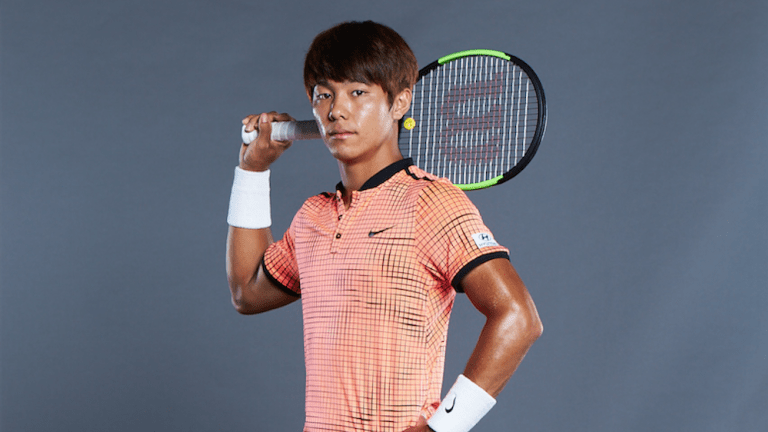Duckhee Lee, history-making deaf tennis player, wins ITF tournament in Egypt
By Feb 22, 2022ATP Winston Salem, USA
Duckhee Lee becomes first deaf player to win an ATP main draw match
By Aug 19, 2019For the love of the game: Tommy Robredo, Dudi Sela keep striving
By Jun 11, 2019Ranking Reaction
How Jessica Pegula and Coco Gauff can pass Iga Swiatek for the No. 2 ranking in Madrid
By Apr 25, 2025Pick of the Day
Madrid Open Betting Preview: Joao Fonseca vs. Tommy Paul
By Apr 25, 2025Lifestyle
Iga Swiatek shares first look at new Lancôme campaign
By Apr 25, 2025Madrid, Spain
"It’s being a complicated injury": Paula Badosa forced to delay 2025 clay debut with back issue
By Apr 25, 2025Madrid, Spain
Reigning Madrid champ Andrey Rublev gets walkover from Gael Monfils; 2024 finalist Auger-Aliassime out
By Apr 25, 2025Madrid, Spain
Diana Shnaider vs. Anastasija Sevastova: Where to Watch, Madrid Preview, Betting Odds
By Apr 25, 2025Madrid, Spain
Novak Djokovic vs. Matteo Arnaldi: Where to Watch, Madrid Preview, Betting Odds
By Apr 25, 2025Duckhee Lee, history-making deaf tennis player, wins ITF tournament in Egypt
“Deafness is a part of my tennis life,” says the South Korean. “It sometimes gives me disadvantages, but it has never discouraged me.”
Published Feb 22, 2022
Advertising
Advertising

South Korea's Duckhee Lee was born deaf—and with some big-time talent